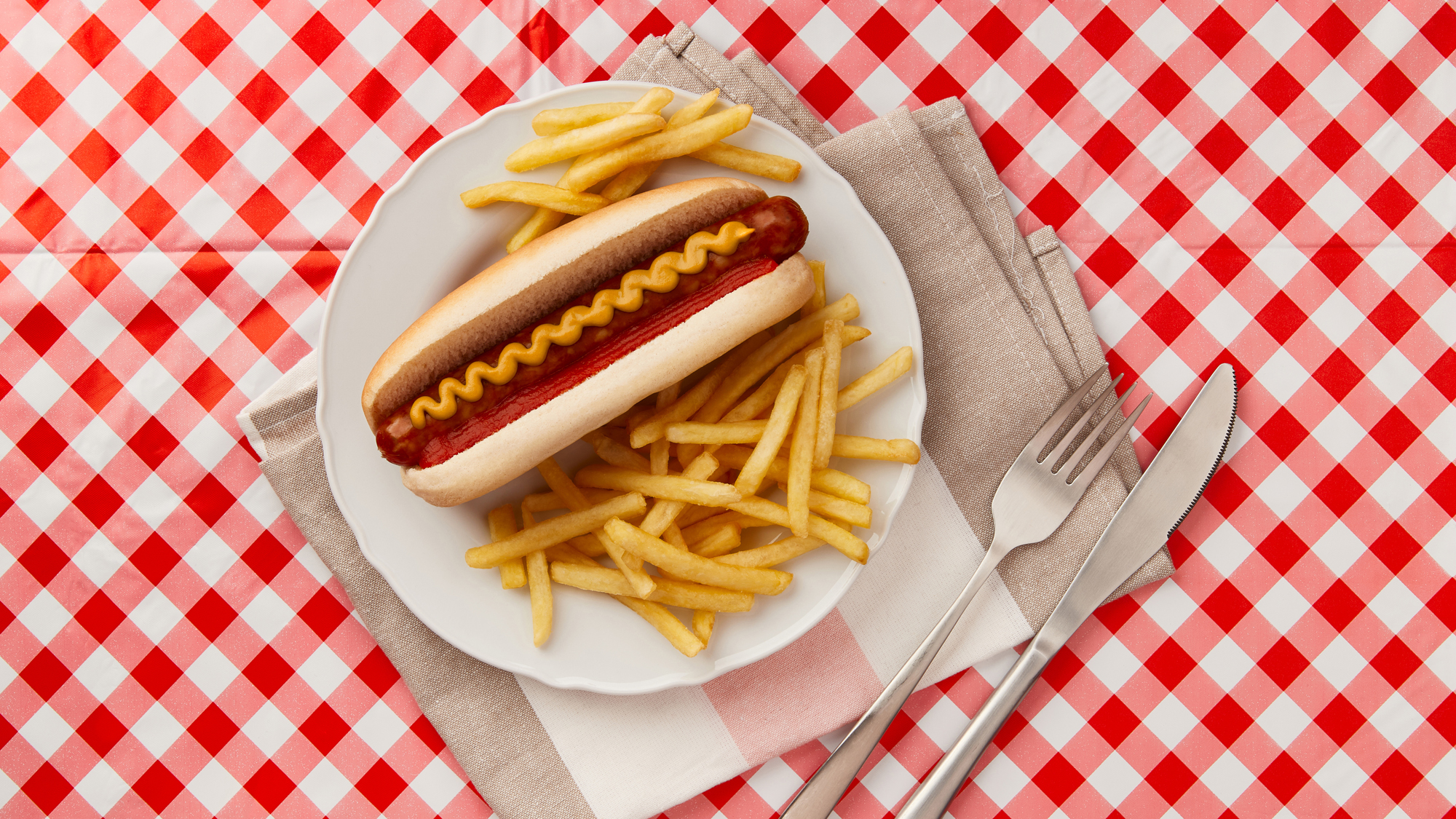Here's how eating junk food affects your strength training
These high-fat foods make us tired, gain fat rather than muscle, and change how our bodies process sugar


We know that working out is an essential part of building muscle. But whether you're after functional all-body strength for HIIT routines or want to develop specific areas, training will only get you so far.
Even with a set of the best adjustable dumbbells by your side, you still need to fuel your body with enough energy and protein to build and repair your muscles post-workout.
But does it matter where those calories and nutrients come from? While some of us savor the traditional muscle-building chicken and rice combo, we all enjoy different styles of food.
Fortunately for fast food fans, fitness YouTuber Chris Heria delved into how eating junk food affects your strength training. Over 24 hours, he ate three takeout meals and then tackled a workout.
This was a substantial change for Heria, as he famously sticks to a healthy diet. While eating a takeout meal, his son even laughs that, "he literally never does this. This is surprising me!"
Although Heria was concerned that there'd be visual changes, you couldn't see any difference in before and after shots. Instead, the most significant impact was on how he felt.
While training, he remarked, "I feel way more fatigued than usual. I have no motivation. What you eat definitely matters when it comes to fueling your workouts."
Get the Fit&Well Newsletter
Start your week with achievable workout ideas, health tips and wellbeing advice in your inbox.
Watch Chris Heria's 24-hour junk food experiment
That said, this is a YouTube video, but if you're concerned he's playing up to the camera, this isn't the only evidence of junk food's impact on your body and how it'll affect your training.
One study found that it only took five days of a high-fat junk food diet to change the way your muscles process glucose, a form of sugar. To positively affect this energy release mechanism, you need to use specific methods.
The Sleep Low-Train Low carb-cycling routine helps your muscles adapt to burn fat during longer workouts but still store glycogen, another form of sugar, for more immediate, intense exercise.
Despite this, if you've spent time researching muscle-building foods, you may have come across dirty bulking. This diet advocates for consuming excess calories, regardless of the source, to gain weight.
While you will gain weight with this method and may even build muscle, most of what you gain will likely be fat if you only eat junk food. Fast food often lacks nutrients, low in protein but high in sugar.
As with most areas of nutrition, whether junk food will help you reach your goals is complex. If you want to gain weight, especially temporarily, then dirty bulking may not harm you in the short term.
However, as Heria's 24-hour experiment showed, most of the immediate changes relate to how you feel rather than how your body performs. The key to enjoying fast food, like with everything, is moderation.
But if you want to develop lean muscle, there's no substitute for eating healthily, adding some of the best protein powders for weight loss into your diet, and exercising.

James is a London-based journalist and Fitness Editor at Fit&Well. He has over five years experience in fitness tech, including time spent as the Buyer’s Guide Editor and Staff Writer at technology publication MakeUseOf. In 2014 he was diagnosed with a chronic health condition, which spurred his interest in health, fitness, and lifestyle management.
In the years since, he has become a devoted meditator, experimented with workout styles and exercises, and used various gadgets to monitor his health. In recent times, James has been absorbed by the intersection between mental health, fitness, sustainability, and environmentalism. When not concerning himself with health and technology, James can be found excitedly checking out each week’s New Music Friday releases.
-
 One simple thing new parents should prioritize above all else to maintain their health and fitness, according to a Centr trainer
One simple thing new parents should prioritize above all else to maintain their health and fitness, according to a Centr trainerHere's what I'm doing differently since becoming a first-time dad
By Sam Rider
-
 A walking coach says this exercise trend can help you hit 10,000 steps a day—here's how
A walking coach says this exercise trend can help you hit 10,000 steps a day—here's howThe 666 walking trend could get you to your target
By Lou Mudge